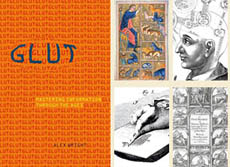Danny Hillis on the Knowledge Web
March 14, 2007
In the wake of Danny Hillis's Metaweb project launch, Edge has just published a follow-up to his 2004 essay, Aristotle: The Knowledge Web. Here Hillis does a good job of articulating the project's basic premise:
One might reasonably ask: Why isn't that database the Wikipedia or even the World Wide Web? The answer is that these depositories of knowledge are designed to be read directly by humans, not interpreted by computers. They confound the presentation of information with the information itself. The crucial difference of the knowledge web is that the information is represented in the database, while the presentation is generated dynamically. Like Neal Stephenson's storybook, the information is filtered, selected and presented according to the specific needs of the viewer.
File under: Semantic Web
_____________________« Metaweb | See you in Vegas? »
GLUT:
Mastering Information Through the Ages
New Paperback Edition
“A penetrating and highly entertaining meditation on the information age and its historical roots.”
—Los Angeles Times
